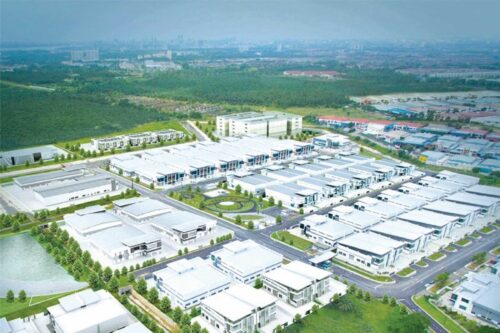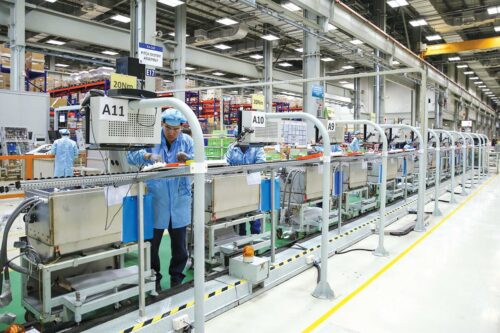The article by Mr. Dinh Hong Ky was published in the “Viewpoint” section of the online newspaper VnExpress.net on December 14, 2018.
Every two to three years, I visit my partners in the Netherlands—two businessmen, Martjin and Ramon. This autumn was no exception. After finishing our work, Martjin and Ramon took us out for dinner in the city center of Breda, a small city in the southern Netherlands. The food was excellent, but what truly caught my attention was the car parking system there. Five years ago, they had coin-operated parking meters where drivers would insert coins to pay by the hour.
Two years later, Martijn simply swiped his credit card to pay for parking. But just last month, I noticed there were no more parking meters at all. As we parked, he casually pulled out his smartphone and tapped a few times. He explained that they now pay for parking via a mobile app.
The entire Netherlands has invested in a parking management system operated through smartphone apps. When a car enters a parking spot, the app automatically calculates the duration of the stay and deducts the fee from the vehicle owner’s registered credit card.
In our conversation, we discussed how the Dutch government has saved a significant portion of its budget by reducing the large workforce previously assigned to manage parking fees. I did a quick mental calculation and realized that if cities like Hanoi and Ho Chi Minh City adopted this system, they could save enormous sums currently spent on maintaining public utility company staff. This approach also helps the government collect 100% of the parking fees from users, eliminating revenue loss due to corruption or inefficiencies in a multi-layered system.
Parking isn’t the only area of improvement. Ramon shared that in every aspect of public service, the Dutch government publicly announces its needs. Citizens and businesses then submit proposals, bid for contracts, and help provide solutions to build a more “digital” and “smart” government.
Not far from us, in Guangzhou, China, parking fee collection via smartphone apps is now the norm. Uniformed parking attendants collecting cash have become a rare sight.
I once accompanied a Vietnamese friend to register a company in Montreal, Canada. From the moment we stepped into the business registration office to the moment we walked out with a newly issued business license, it took less than 25 minutes. You present your ID to the receptionist, who guides you to a dedicated computer connected to the internet and credit card payment system. After filling out all registration information online and paying the fee via credit card, the business owner prints out their license right then and there. The business can start operating immediately. I couldn’t help but compare that with Vietnam, where even after multiple rounds of administrative reform, setting up a company still takes weeks, with piles of paperwork and handwritten forms.
My two sons are currently studying in Canada. We rented them an apartment under my wife’s name. Though she lives in Vietnam, all the apartment’s utility bills—electricity, water, internet—are automatically charged to her credit card in Vietnam, with notifications sent by email. What’s more, these emails include not only usage figures and charges, but also detailed breakdowns and analyses of energy and water consumption by season, by day, and by hour. This helps users optimize their habits and save money. At any time, you can access the internet and instantly know how much electricity and water your home is using.
Meanwhile, back in Vietnam, my home is in a modern urban area in the center of Ho Chi Minh City. Yet, every month, the water bill collector still rings the doorbell—just like 30 years ago. I asked a bank executive why water bills haven’t been automated through banks like electricity and telecom services. He explained, “We’d love to, but the water sector doesn’t want it.” One reason is the jobs of hundreds of thousands of people who still collect water fees in person.
We are being loudly encouraged to embrace the “Fourth Industrial Revolution.” The government wants businesses and citizens to proactively engage with this “revolution.” But above all, people need to see the government take the lead. A bureaucracy still heavily burdened with outdated, centralized systems and an enormous number of civil servants is a major obstacle to national progress—and to the creation of a smart, digital government.
The government recently issued a decree raising the regional minimum wage for workers, effective from January 1, 2019, by VND 160,000–200,000 per month, depending on the area. This decision followed intense debate over budget constraints and the burden on different sectors.
I wonder: if we could privatize numerous tasks within state-owned enterprises and public services—as many other countries have—by inviting businesses to bid for app or software development contracts, wouldn’t debates over minimum wage and budget tightening ease significantly?
Just imagine: by cutting tens of thousands of water bill collectors across the country, how much money could we save on salaries and operating costs—not just for water companies, but for the public service sector as a whole?
If the government were bold enough to accelerate the development of a truly smart and digital administrative system, then reducing millions of staff involved in manually writing parking tickets, issuing social insurance receipts, collecting utility bills, or performing repetitive clerical work at government offices—and redirecting them to more productive jobs—would no longer be a point of heated debate.
The real question about a smart government is not “how much?”, but rather “how?”


